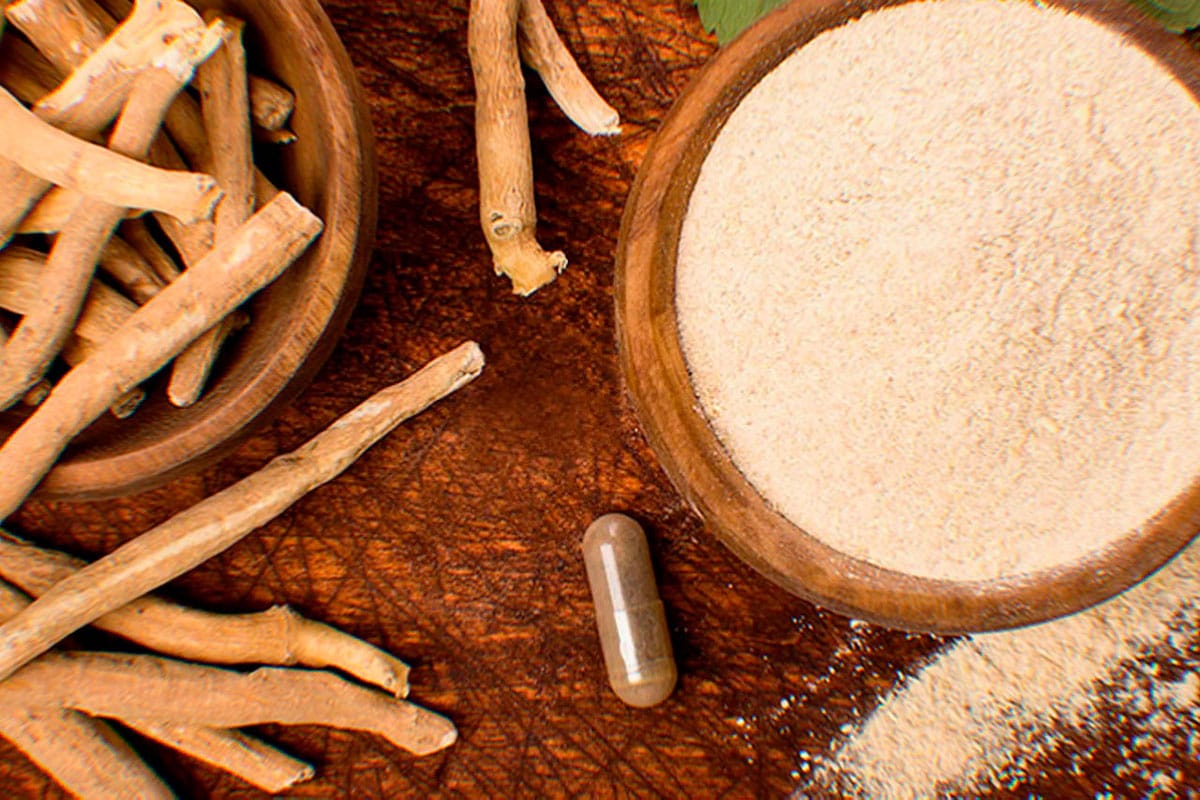Table of Contents
Ashwagandha, or Withania somnifera, is a well-known evergreen shrub commonly utilized for stress, and it grows in Africa and Asia. It is sometimes known as the winter cherry or Indian ginseng. Withania somnifera is a part of the nightshade group of plants, and its alleged active components comprise steroidal lactones, alkaloids, withanolides, and saponins.
Ashwagandha is usually utilized as a traditional medicine of India called Ayurveda or Ayurvedic medicine. This adaptogen has roots and herbs that help balance mental, emotional, and physical stresses, and it helps your body cope with different stressors. For thousands of years, Ashwagandha has been used to relieve stress, augment energy levels, and improve concentration. In Sanskrit, Ashwagandha means “smell of a horse,” it refers to both the scent of a herb and its capability to enhance strength.
The plant Ashwagandha is a little shrub with yellow flowers, native to Southeast Asia and India. The powder and extract of the leaves and roots of the plant are utilized for treating various conditions, including fertility issues and anxiety. Ashwagandha comprises chemicals that might aid in calming the brain, altering the immune system, lessening swelling, and lowering blood pressure.
Benefits of Ashwagandha
There are several benefits of Ashwagandha, and some of them are:
- Ashwagandha is excellent for blood sugar and fat loss – Many medical research studies have shown that Ashwagandha helps lessen blood glucose levels. These studies also showed its effectiveness for people with diabetes. This medicinal herb is also helpful in reducing the concentration of triglycerides.
- Heart health – Ashwagandha augments the oxygen you obtain during strenuous physical exercise. This herb can enhance the max. Levels of VO2 that are useful for gauging cardiorespiratory stamina.
- It proposes relief from stress or anxiety – Ashwagandha is famous for its capability to lessen anxiety and stress. A renowned study proved the ability of Ashwagandha to improve people’s sleep quality.
- Ashwagandha is a non-stimulant that raises focus – Several studies have been done on the cognition effects of Ashwagandha. Ashwagandha is reputed for improving the connection between the brain and body.
- The attributes of sexual function (benefits for men) – Ashwagandha might help men’s reproductive success. It not only elevates fertility but also boosts the levels of testosterone.
- The attributes of sexual function (benefits for women) – In some clinical studies that involved women and Ashwagandha, it proved that Ashwagandha could induce remarkable augmentations in the survey.
- Enhancements to muscle mass and Strength – Several studies have shown that Ashwagandha could improve strength and muscle size. It can also augment speed besides lessening people’s body fat percentage.
The safety of Ashwagandha
Ashwagandha is also known as the winter cherry or Indian ginseng, and it was traditionally utilized as alternative medicine, such as Indian Ayurvedic medicine. It is an adaptogen that might help people adapt to mental, emotional, and physical stressors. Ashwagandha is commonly regarded as safe and used to treat low levels of testosterone, anxiety, and stress, besides other medical conditions. Some other groups of people must not take Ashwagandha, like breastfeeding or pregnant women or people who suffer from medical issues like low or high blood pressure, autoimmune disease, thyroid disorders, stomach ulcers, or diabetes.
The use of Ashwagandha
- When you take Ashwagandha by mouth – Ashwagandha is safe when you use it for three months, but still, its long-term safety is unknown. However, in large doses, Ashwagandha might result in diarrhea, vomiting, or stomach upset.
- When you apply Ashwagandha to your skin – There is a shortage of sufficient reliable information that would let people know whether Ashwagandha is safe, besides its side effects.
- Breastfeeding – There is not sufficient information that would let breastfeeding women know whether they can take Ashwagandha safely or not.
- Pregnancy – Commonly, it is not safe to utilize Ashwagandha when a woman is pregnant as it might cause miscarriages.
Safe dosage of Ashwagandha
People should know that there isn’t any standard dosage for the extract supplements of Ashwagandha. Studies observed different usages of the dosages of Ashwagandha gummies that range from 125 milligrams to 5 grams. They are habitually split into a couple of or four dosages daily. People come across various dosages of the supplements at a local health store or online.
A lower amount is used in supplements having several components, but higher dosages are commonly found in an Ashwagandha-specific supplement. As people can react to supplements differently, they must start with a low dosage. It will help them gauge their tolerance to them. A person might wish to begin with one capsule or pill daily to see his reaction. Slowly, he can add tablets until he reaches the total suggested dosages. Nonetheless, he must consult his healthcare provider to know if he can use the upper dose ranges of Ashwagandha.
Most people view Ashwagandha as a considerably benign herbal supplement that can help with issues such as stress, anxiety, low testosterone, etc. Nonetheless, in this context, the research is confined, and scientists are unaware of the benefits people can get when taking it in optimal dosages. Therefore, you must have a consultation with your physician before you begin to take this herbal supplement.
The effectiveness of the different parts of the Ashwagandha plant
- Seeds and flowers – The flowers of Ashwagandha have potent aphrodisiac and diuretic properties, and they can augment fertility and treat kidney issues like kidney stones. On the other hand, the seeds of Ashwagandha have anthelmintic features that help treat parasitic invasions and infectious diseases.
- Leaves – Ashwagandha leaves’ antioxidant and analgesic properties help treat the symptoms of cold and cough, chronic pain, fever, and viral infection.
- Roots – The roots of the Ashwagandha plants are the essential part of this plant, commonly utilized in different formulations. The roots have strong diuretic, antioxidant, aphrodisiac, anti-diabetic, and antidepressant properties. This is the reason they help to treat diabetes, skin disorders, constipation, infertility, and many more conditions.

